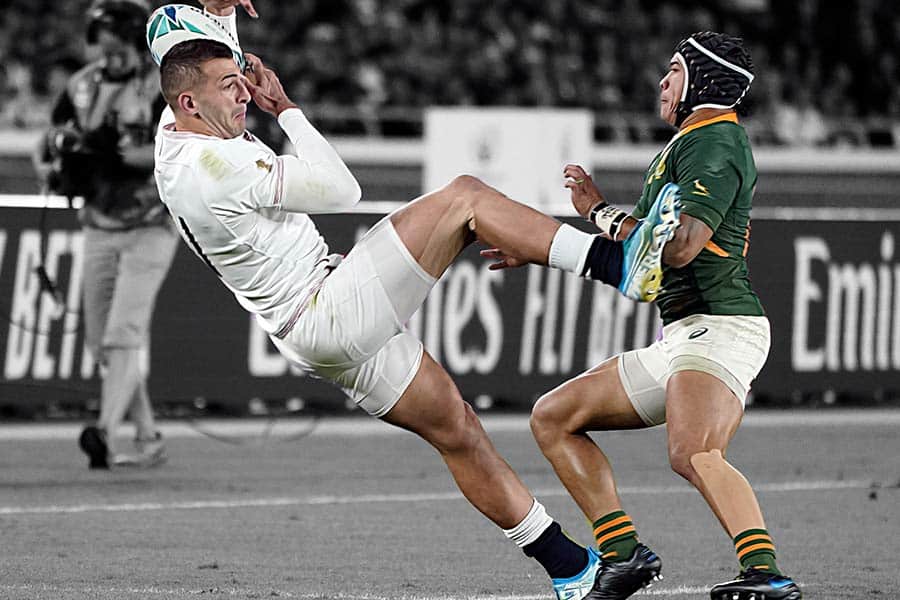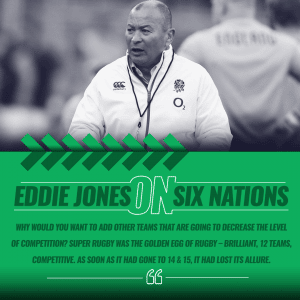
04 March 2020, by: Sibusiso Mjikeliso
Unpopular Opinion: SA Rugby Heading North is a Cowardly Act
There is something delightfully delectable in the rivalry between South Africa and New Zealand and if the reported switch from Sanzar to the Northern Hemisphere is ratified, many of our savoured rugby traditions will be destroyed.
The UK’s Daily Mail reported last month that there were advanced behind-the-scenes negotiations that would see South Africa dump their Southern Hemisphere rivals, New Zealand, Australia and Argentina in favour of a more lucrative deal up north.
Far be it for me to tell people what to do in their jobs but if those reports are to be trusted, the move would signal the most cowardly act by SA’s rugby administrators since post-isolation unity. The idea screams of creative bankruptcy and would signal permanent defeat to, chiefly, the All Blacks.
The administrators in charge of the game have their reasons for wanting the Springboks to join the Six Nations – and make it a seven nation tournament – and many of them are sound. The mooted financial windfall could place SA Rugby’s finances at a place they haven’t been for a decade and newness of it all would probably drive curious minds into the stands.
The ease of the travelling schedule, across fewer time zones if any, would make away games a joyride on the lap of luxury. There would be no need to recover from punishing jet-lag, as is the case whenever the Boks cross the Indian and Atlantic Oceans to visit Australasia and South America.
Of course, it would. The Six Nations right now looks like a temping new lover, offering more than just the rice and potatoes of the old one. But the temptress could turn to a succubus once the novelty wears off. The past 25 years have been glorious but chastening for South Africa in the professional era. The All Blacks have won close to 90% of their games in that period, while South Africa hovered somewhere in the 60% range.
The lion’s share of all trophies have gone to the Kiwis and the Aussies boast more Super Rugby winners. Interest in either of the competition has waned but what will forever get the blood moving is a clash against the All Blacks.
No matter how much money England, Wales, Italy, Ireland, Scotland and France have, they can never replicate the intensity of a Springboks-All Blacks clash. The recent duel between Rassie Erasmus and Steve Hansen, which culminated with Rugby World Cup clash at Yokohama Stadium, was proof that there are few things we still treasure as South Africans than beating the All Blacks. The win in Wellington in 2018 is still being talked about as one of the greatest Springboks games of the professional era. The drama of the draw, at the same venue a year later, will be hard to match.
These results have shown that there is no guarantee that South African teams or the national men’s team will be successful against European teams. If there was an argument that the move up north would help stem the flow of talent from SA’s shores, that has been made tenuous by recent developments around Brexit and French Rugby president Bernard Laporte’s drive to end the foreign player influx into French rugby.
A recent MyPlayers Players’ Voice Survey revealed that, although nine out of 10 South African players had the desire or were working towards an overseas move, mainly for financial reasons, those wishes could be severely hampered by the new tax law that came into effect March 1, 2020. The new tax law will require foreign-based professionals to pay income tax in South African – over an above the tax subject in the country of operation – with only the first R1-million being exempt from tax.
From what we know, some players command foreign wages in the R16-million region but, as with all income tax, the higher your bracket, the more you sacrifice to the taxman. The survey also revealed that players might not be aware once they sign overseas contracts that the cost of living in places like London were 132% more than that of Cape Town, probably the most expensive place to live in Mzansi. Paris sits at 96.5% higher and Tokyo is at 110% more.
I could go on about the fact that the reason Springboks have won three world titles has a lot more to do with the fierce competition they get down south rather than up north. It’s a simple fact that Southern Hemisphere teams are superior rugby nations. South Africa shouldn’t sacrifice their place upon the mountain top just because the suits have run out of creative ways to maximise revenue from the game.
With improved Super Rugby performances, the market will pick up. We’ve already seen the commercial impact of the Japan heroics already and there is more on the horizon.
MORE RUGBY






















